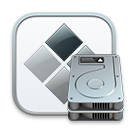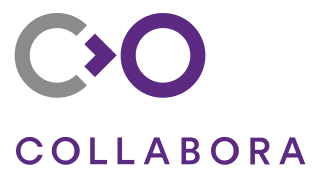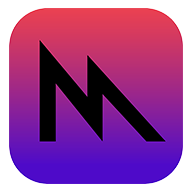Alyssa Rosenzweig | |
|---|---|
 | |
| Notable work | Panfrost |
Alyssa Rosenzweig is a software developer [1] and software freedom activist [2] known for her work on free software graphics drivers. [3] [4]
Alyssa Rosenzweig | |
|---|---|
 | |
| Notable work | Panfrost |
Alyssa Rosenzweig is a software developer [1] and software freedom activist [2] known for her work on free software graphics drivers. [3] [4]
Rosenzweig attended Dougherty Valley High School, with enrichment classes at Harvard Summer School and the Center of Talented Youth. [5]
As of 2021, she studies mathematics at Innis College at the University of Toronto as a Lester B. Pearson International Scholar. [6] [7] [5]
As a software engineer at Collabora, she led the Panfrost project, [8] developing free software OpenGL drivers for the Mali GPU to support accelerated graphics in upstream Mesa, [9] shipping out-of-the-box on devices like the Pinebook Pro. [10] She left Collabora on 10 April 2023. [11] Since May of 2023, she has worked with Valve Corporation as a contractor. [12]
In September 2020, she wrote a Linux client for the COVID-19 contact tracing used in Canada. [3]
As an Asahi Linux developer, she works on reverse-engineering the Apple GPU for the purpose of porting Linux to the Apple M1 processor [13] [14] [15] to enable the development of a free software Gallium3D-based OpenGL driver [16] targeting the "AGX" architecture found in the M1 GPU. [17] In July 2021, Rosenzweig demonstrated Debian running bare metal on the Apple M1 with a mainline kernel. [18]
She is the recipient of the 2020 Award for Outstanding New Free Software Contributor [19] [20] and a Google Open Source Peer Bonus. [21]
Radeon is a brand of computer products, including graphics processing units, random-access memory, RAM disk software, and solid-state drives, produced by Radeon Technologies Group, a division of AMD. The brand was launched in 2000 by ATI Technologies, which was acquired by AMD in 2006 for US$5.4 billion.
Mesa, also called Mesa3D and The Mesa 3D Graphics Library, is an open source implementation of OpenGL, Vulkan, and other graphics API specifications. Mesa translates these specifications to vendor-specific graphics hardware drivers.

A free and open-source graphics device driver is a software stack which controls computer-graphics hardware and supports graphics-rendering application programming interfaces (APIs) and is released under a free and open-source software license. Graphics device drivers are written for specific hardware to work within a specific operating system kernel and to support a range of APIs used by applications to access the graphics hardware. They may also control output to the display if the display driver is part of the graphics hardware. Most free and open-source graphics device drivers are developed by the Mesa project. The driver is made up of a compiler, a rendering API, and software which manages access to the graphics hardware.

Boot Camp Assistant is a multi boot utility included with Apple Inc.'s macOS that assists users in installing Microsoft Windows operating systems on Intel-based Macintosh computers. The utility guides users through non-destructive disk partitioning of their hard disk drive or solid-state drive and installation of Windows device drivers for the Apple hardware. The utility also installs a Windows Control Panel applet for selecting the default boot operating system.
The Radeon R700 is the engineering codename for a graphics processing unit series developed by Advanced Micro Devices under the ATI brand name. The foundation chip, codenamed RV770, was announced and demonstrated on June 16, 2008 as part of the FireStream 9250 and Cinema 2.0 initiative launch media event, with official release of the Radeon HD 4800 series on June 25, 2008. Other variants include enthusiast-oriented RV790, mainstream product RV730, RV740 and entry-level RV710.
Adreno is a series of graphics processing unit (GPU) semiconductor intellectual property cores developed by Qualcomm and used in many of their SoCs.

AMD Radeon Software is a device driver and utility software package for AMD's Radeon graphics cards and APUs. Its graphical user interface is built with Qt and is compatible with 64-bit Windows and Linux distributions.

Collabora Ltd is a global private company headquartered in Cambridge, United Kingdom, with offices in Cambridge and Montreal. It provides open-source consultancy, training and products to companies.

The Radeon HD 7000 series, codenamed "Southern Islands", is a family of GPUs developed by AMD, and manufactured on TSMC's 28 nm process. The primary competitor of Southern Islands, Nvidia's GeForce 600 Series, also shipped during Q1 2012, largely due to the immaturity of the 28 nm process.
Rockchip is a Chinese fabless semiconductor company based in Fuzhou, Fujian province. Rockchip has been providing SoC products for tablets & PCs, streaming media TV boxes, AI audio & vision, IoT hardware since founded in 2001. It has offices in Shanghai, Beijing, Shenzhen, Hangzhou and Hong Kong. It designs system on a chip (SoC) products, using the ARM architecture licensed from ARM Holdings for the majority of its projects.

LibreOffice is a free and open-source office productivity software suite, a project of The Document Foundation (TDF). It was forked in 2010 from OpenOffice.org, an open-sourced version of the earlier StarOffice. The LibreOffice suite consists of programs for word processing, creating and editing of spreadsheets, slideshows, diagrams and drawings, working with databases, and composing mathematical formulae. It is available in 115 languages. TDF does not provide support for LibreOffice, but enterprise-focused editions are available from companies in the ecosystem.

Apple silicon refers to a series of system on a chip (SoC) and system in a package (SiP) processors designed by Apple Inc., mainly using the ARM architecture. They are the basis of Mac, iPhone, iPad, Apple TV, Apple Watch, AirPods, AirTag, HomePod, and Apple Vision Pro devices.
CodeXL was an open-source software development tool suite which included a GPU debugger, a GPU profiler, a CPU profiler, a graphics frame analyzer and a static shader/kernel analyzer.

Metal is a low-level, low-overhead hardware-accelerated 3D graphic and compute shader API created by Apple, debuting in iOS 8. Metal combines functions similar to OpenGL and OpenCL in one API. It is intended to improve performance by offering low-level access to the GPU hardware for apps on iOS, iPadOS, macOS, and tvOS. It can be compared to low-level APIs on other platforms such as Vulkan and DirectX 12.
Vulkan is a low-level low-overhead, cross-platform API and open standard for 3D graphics and computing. It was originally developed as Mantle by AMD, but was later given to Khronos Group. It was intended to address the shortcomings of OpenGL, and allow developers more control over the GPU. It is designed to support a wide variety of GPUs, CPUs and operating systems, it is also designed to work with modern multi-core CPUs.
Pine Store Limited, known by its trade name Pine64, is a Hong Kong-based organization that designs, manufactures, and sells single-board computers, notebook computers, as well as smartwatch/smartphones. Its name was inspired by the mathematical constants pi and e with a reference to 64-bit computing power.

The Pinebook is a low-cost notebook developed by Hong Kong-based computer manufacturer Pine64. The Pinebook was announced in November 2016 and production started in April 2017. It is based on the platform of Pine64's existing Pine A64 single board computer, costing US$89 or US$99 for the 11.6" and 14" model respectively. Its appearance resembles the MacBook Air. The Pinebook is sold "at-cost" by Pine64 as a community service.

Collabora Online is an open source online office suite built on LibreOffice Technology, enabling web-based collaborative real-time editing of word processing documents, spreadsheets, presentations, and vector graphics. Optional apps are available for desktops, laptops, tablets, smartphones, and Chromebooks.

Apple M1 is a series of ARM-based systems-on-a-chip (SoCs) designed by Apple Inc. as a central processing unit (CPU) and graphics processing unit (GPU) for its Mac desktops and notebooks, and the iPad Pro and iPad Air tablets. The M1 chip initiated Apple's third change to the instruction set architecture used by Macintosh computers, switching from Intel to Apple silicon 14 years after they were switched from PowerPC to Intel, and 26 years after the transition from the original Motorola 68000 series to PowerPC. At the time of introduction in 2020, Apple said that the M1 had the world's fastest CPU core "in low power silicon" and the world's best CPU performance per watt. Its successor, Apple M2, was announced on June 6, 2022, at WWDC.

Asahi Linux is a project that ports the Linux kernel and related software to Apple silicon-powered Macs. The software design project was started and is led by Hector Martin. Work began in early 2021, a few months after Apple formally announced the transition to Apple silicon. An initial alpha release followed in 2022. The project has been made challenging by the lack of publicly available documentation of Apple's proprietary firmware.
{{cite web}}: CS1 maint: numeric names: authors list (link)